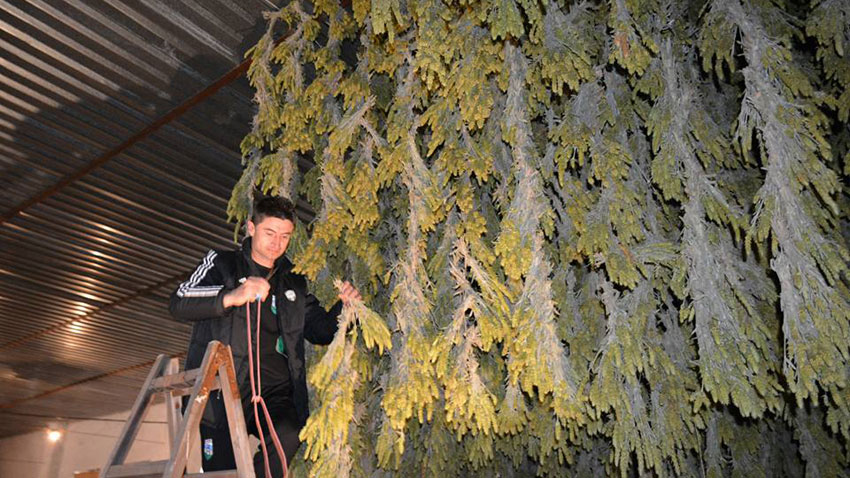Bulgarian Stefan Spasov and his family established a plantationfor Pirin tea nine years ago. It is situated in Southwest Bulgaria, really close to the natural area of the Pirin Mountain, where the plant species can be found – at the foot of the Sveti Duh Peak near the village of Novo Leski, at an altitude of some 1,200 m. The plant is a Balkan endemic species and it has three other names, depending on the separate regions where it can be found – mursalski tea /after the Mursalitsa area in the Rhodope Mountain/, alibotushki tea /after the Alibotush area in South Pirin/ and also sharplaninski tea – after the Shar Mountain in Macedonia.

Extensive research in Bulgaria and abroad has established that the herb has its unique structure, containing 19 microelements which are essential for the human body – selenium, zinc and many others, alongside substances that are biologically active and keeping us in good health. That was what made Stefan and his family turn to the production and popularization of this kind of tea:
 “The tea can be found at an altitude of 1,200 – 2,000 m. Its structure resembles the one of edelweiss and that makes it really sustainable, as far as sudden temperature changes are concerned. The plant is a powerful stimulator of the immune system, giving strength to the body in its struggle with viruses and bacteria. Lab research shows that the tea slows down the cells’ aging, providing energy to them, improving the mental and physical abilities of a person. It also helps in cases of liver conditions; it is really good for the excretory organs and the respiratory system. They have used it for ages in the Pirin region against asthma, bronchitis and all kinds of coughs. We have been sending repeatedly samples to a German lab for several years – the latter works with one of the biggest companies in the pharmaceutical and herbal industry. They have also found out there that the plant is a powerful antioxidant, preventing the formation of cancer cells, improving memory. There are patents ready right now for its pharmaceutical implementation as a tincture.”
“The tea can be found at an altitude of 1,200 – 2,000 m. Its structure resembles the one of edelweiss and that makes it really sustainable, as far as sudden temperature changes are concerned. The plant is a powerful stimulator of the immune system, giving strength to the body in its struggle with viruses and bacteria. Lab research shows that the tea slows down the cells’ aging, providing energy to them, improving the mental and physical abilities of a person. It also helps in cases of liver conditions; it is really good for the excretory organs and the respiratory system. They have used it for ages in the Pirin region against asthma, bronchitis and all kinds of coughs. We have been sending repeatedly samples to a German lab for several years – the latter works with one of the biggest companies in the pharmaceutical and herbal industry. They have also found out there that the plant is a powerful antioxidant, preventing the formation of cancer cells, improving memory. There are patents ready right now for its pharmaceutical implementation as a tincture.”
The Pirin Tea is also used as an anti-inflammatory substance which also helps digestion as it is popular as an aphrodisiac as well. It helps whenever one has kidney problems, it stimulates energy metabolism and has a really good impact on the excretory and reproductive systems. Today Stefan’s plantation spreads over 0.8 ha. He says that the planting is really tough, as everything is done by hand, since the terrain wouldn’t allow the usage of machines. However, it’s worth it, in his words, because this is a traditional Bulgarian product which will conquer international markets. The distribution of the tea in Germany is forthcoming and the hope is that it will turn into a traditional product for their table. Negotiations are underway with Japan, as well.
At the moment, the ministry of agriculture has contracted with a German retail chain store that this product be included in the Week of Bulgarian Products held there.

The tea from the plantation is a certified organic product – no fertilizers and dangerous chemicals are used during its production process. Samples are regularly taken from the plants and the soil.
Here is how the infusion is made: you take 3 – 4 floral sprigs and pour over 1 liter of water. When the water boils, you brew it for 15 minutes. The liquid is drunk through the whole day.
English version: Zhivko Stanchev
Photos: courtesy of Stefan SpasovThe program of the Orthodox Book Week offers meetings with authors, publishers and translators of Orthodox books from the last few years. The event is held until November 10 at the ''St. Procopius of Varna'' Church, with meetings taking place every..
The "Kabiyuk" horse breeding farm in the village of Konyovets is the oldest stud farm in Bulgaria, founded in 1864 by Midhat Pasha, the governor of the vilayet of Ruse, to produce horses for the Turkish army. The farm existed until the Russo-Turkish War..
There is no exact statistic on the number of Bulgarians living abroad, but a report from the Ministry of Foreign Affairs from last year indicates that around 2.8 million Bulgarians are living outside the country . According to the 2021 population census..
The Varna Regional Library "Pencho Slaveykov" has acquired a humanoid robot. It was unveiled by the library's director, Radka Kalcheva, during the..

+359 2 9336 661
